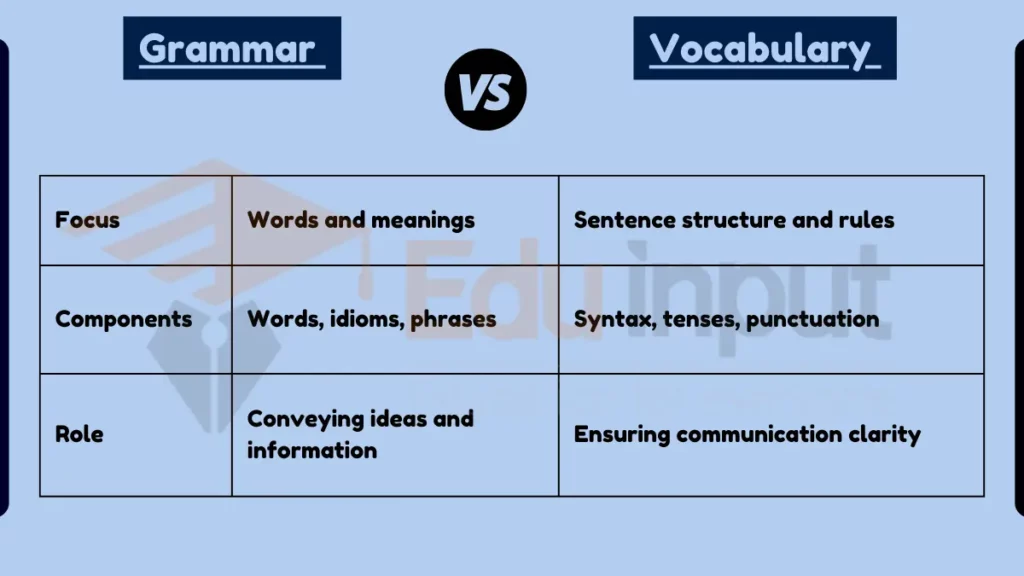Difference Between Grammar and Vocabulary
Key Difference
Grammar and vocabulary are both fundamental components of language learning and usage, but they serve different roles in communication. Vocabulary refers to the words used in a language, encompassing their meanings, pronunciation, and context of use. It’s the set of words that a person knows or uses.

Grammar, on the other hand, is the set of rules that govern how words are put together in a language to form sentences, phrases, and other speech elements. It includes the structure of sentences, verb tenses, agreement, and syntax.
Comparative Analysis
- Focus and Scope:
- Vocabulary: Concerned with words and their meanings.
- Grammar: Concerned with sentence structure and word relationships.
- Components:
- Vocabulary: Individual words, idioms, phrases.
- Grammar: Syntax, verb tenses, punctuation, agreement rules.
- Role in Language:
- Vocabulary: Essential for understanding and conveying specific information or ideas.
- Grammar: Ensures clarity, coherence, and correctness in communication.
- Learning and Usage:
- Vocabulary: Expanded through reading, conversation, and study.
- Grammar: Learned through study of language rules and practice.
- Variability:
- Vocabulary: Constantly evolving with new words and usage.
- Grammar: More stable, though it can evolve over time.
Table Summary of Grammar and Vocabulary
| Feature | Vocabulary | Grammar |
|---|---|---|
| Focus | Words and meanings | Sentence structure and rules |
| Components | Words, idioms, phrases | Syntax, tenses, punctuation |
| Role | Conveying ideas and information | Ensuring communication clarity |
| Learning | Reading, conversation | Study and practice of rules |
| Variability | Continuously evolving | Relatively stable but evolves |



Leave a Reply